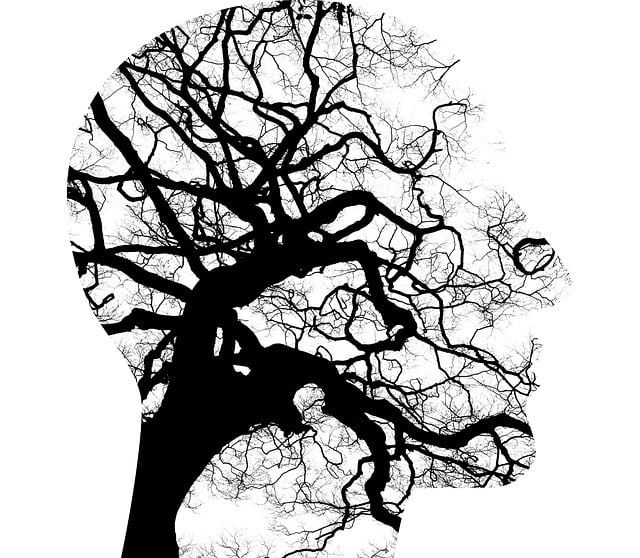Coping skills are essential for adults' wellness, especially navigating stress and life challenges. Acceptance and Commitment Therapy (ACT) is an effective therapy that teaches acceptance of emotions and commitment to valued actions, promoting emotional regulation through mindfulness meditation. By cultivating present-moment awareness, discarding rigid self-judgments, and practicing compassion, individuals develop inner strength and resilience, fostering meaningful engagement in activities and enhanced overall well-being. Techniques like integrating Mind Over Matter principles, challenging negative thoughts with positive affirmations, and keeping a mental wellness journal enhance adaptability in stressful situations, supported by therapy for adults including ACT.
Coping skills development is a crucial aspect of adult wellness, enabling individuals to navigate life’s challenges with resilience. This article delves into understanding coping mechanisms and their profound impact on mental health. We explore Acceptance and Commitment Therapy (ACT), a game-changer in therapeutic approaches for adults, fostering acceptance and committing to valued actions. Additionally, practical strategies are offered to help readers cultivate robust coping mechanisms, enhancing overall well-being.
- Understanding Coping Skills and Their Significance in Adult Wellness
- Exploring Acceptance and Commitment Therapy (ACT) as an Effective Framework
- Practical Strategies for Developing Robust Coping Mechanisms
Understanding Coping Skills and Their Significance in Adult Wellness

Coping skills are essential tools for maintaining adult wellness and overall mental health. They refer to the strategies individuals use to manage and reduce the impact of stressful situations, negative emotions, or challenging life events. These skills play a pivotal role in resilience building, enabling adults to navigate life’s twists and turns with greater ease. By learning effective coping mechanisms, people can enhance their ability to handle pressure, reduce anxiety, and promote emotional healing processes.
Acceptance and Commitment Therapy (ACT) is a therapeutic approach that emphasizes the importance of coping skills development. It encourages individuals to accept their emotions rather than fighting them, while also committing to valued actions. This therapy has gained popularity through various mental wellness podcast series production, offering practical techniques for cultivating mindfulness meditation practices. These practices have been shown to improve emotional regulation and overall life satisfaction. Through therapy for adults, one can discover personalized coping strategies that fit their unique needs, fostering a sense of balance and enhancing their ability to thrive in today’s fast-paced world.
Exploring Acceptance and Commitment Therapy (ACT) as an Effective Framework

Acceptance and Commitment Therapy (ACT) offers a powerful framework for coping skills development in adults. This therapeutic approach emphasizes acceptance of difficult thoughts and emotions rather than striving for their elimination, fostering a more flexible mindset. By cultivating present-moment awareness and discarding rigid self-judgments, ACT enables individuals to develop inner strength and resilience.
One key aspect of ACT is the integration of compassion cultivation practices, which encourage individuals to treat themselves with kindness and understanding. This, coupled with resilience building techniques, equips adults with effective coping strategies for managing life’s challenges. Through these means, ACT promotes a more meaningful engagement in valued activities, leading to enhanced overall well-being.
Practical Strategies for Developing Robust Coping Mechanisms

Developing robust coping mechanisms is a vital part of maintaining mental wellness. Practical strategies include integrating Mind Over Matter principles into daily routines. This involves challenging negative thoughts and replacing them with positive affirmations, a technique often encouraged in Acceptance and Commitment Therapy (ACT). By cultivating awareness of one’s emotions and accepting them without judgment, individuals can develop a more flexible mindset.
Additionally, maintaining a Mental Wellness Journal offers valuable guidance. Documenting thoughts, feelings, and experiences allows for self-reflection and identification of patterns. Regular journaling can help in understanding triggers and developing effective coping strategies. Mood management is enhanced through this practice, enabling individuals to regulate their emotional responses. Incorporating these techniques into daily life promotes resilience and better adaptation to stressful situations.
Coping skills are essential tools for maintaining adult wellness, allowing individuals to navigate life’s challenges with resilience. As discussed, Acceptance and Commitment Therapy (ACT) offers a powerful framework for understanding and cultivating these skills. By embracing evidence-based strategies, adults can develop robust coping mechanisms that enhance overall well-being. Through mindfulness, acceptance, and commitment to personal values, individuals can lead more fulfilling lives, even in the face of adversity. Embracing therapy, such as ACT, empowers folks to transform their relationship with stress and embrace a path of growth and meaningful existence.











